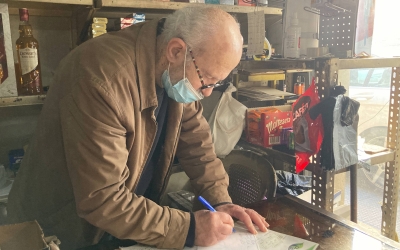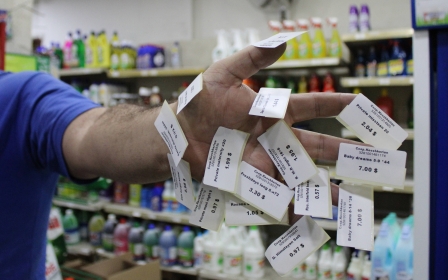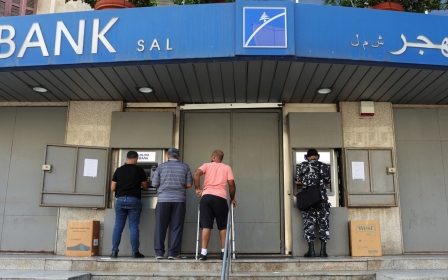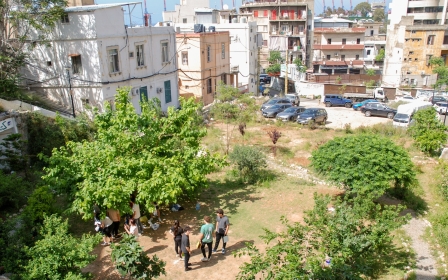Lebanon's easy-life tourist season masks grim reality for its people
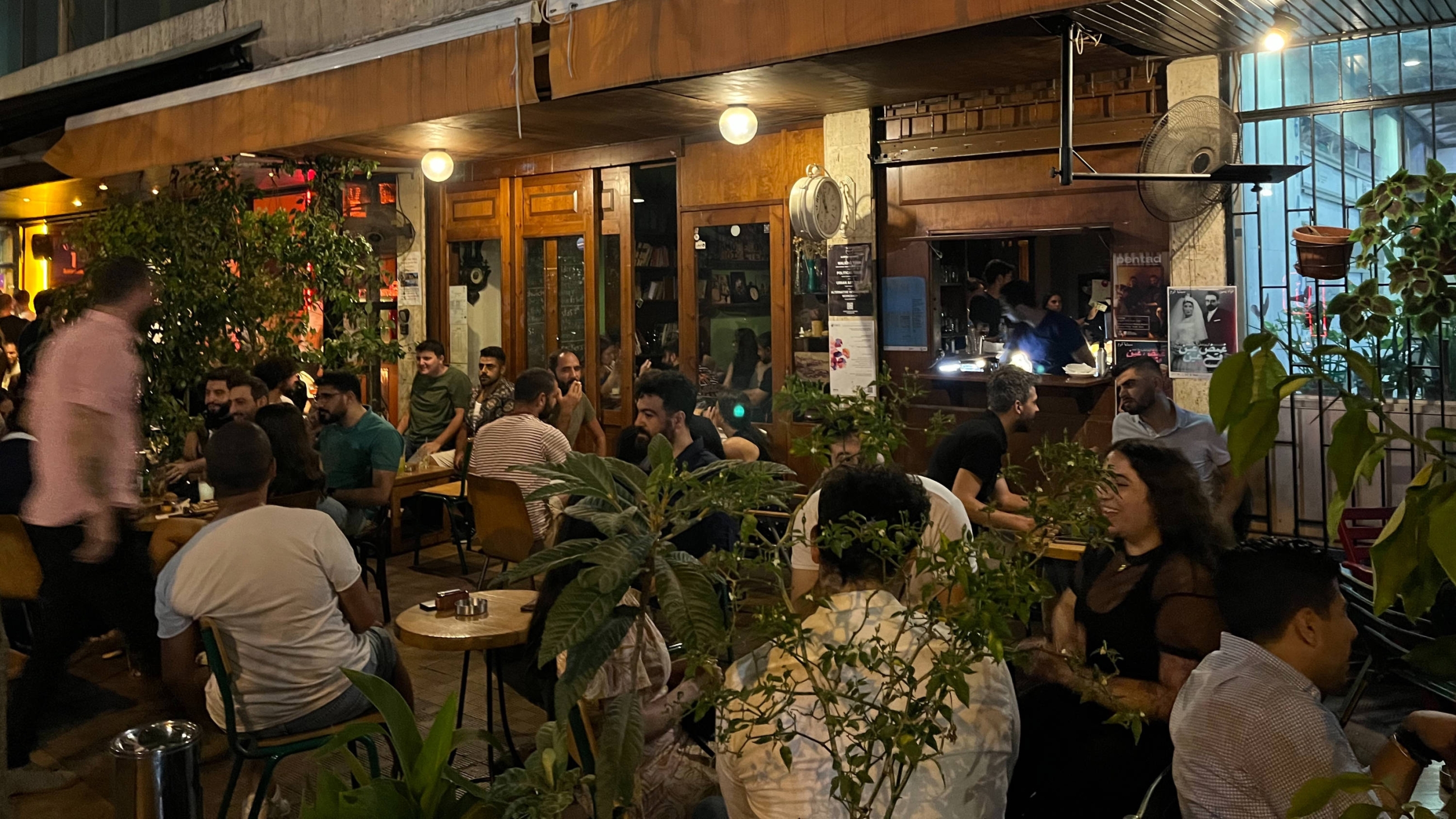
Across Beirut's coastline, hot summer nights are illuminated by packed nightclubs, where sweaty ravers dance to bass-heavy music until the sun comes up.
Nearby, people from Lebanon and across the world fill up the Gemmayzeh area's pubs and bars on an unusually noisy Monday night. The sound of pop music can be heard on every corner of the narrow streets, as travellers move from place to place trying to find a vacant table.
It's a scene that had more or less disappeared over the past couple of years in the Beirut neighbourhood, which still shows signs of damage by the 2020 port blast that flattened much of the area.
Even with the country still struggling through an economic crisis and political paralysis, its restaurant and pub owners now appear to be savouring a few cautious sighs of relief.
New MEE newsletter: Jerusalem Dispatch
Sign up to get the latest insights and analysis on Israel-Palestine, alongside Turkey Unpacked and other MEE newsletters
Caretaker Tourism Minister Walid Nassar expects more than two million people to visit Lebanon this summer, the highest figure in years. Numbers last December had already recovered past the 2019 pre-Covid figure for that low-season part of the year.
Now the country's cash-strapped government and businesses hope the tourists and expatriates will give the ailing economy a much-needed cash boost.
"Everyone is living, the restaurants are full," said 34-year-old Sally Hrawi, an art director in Dubai visiting family in Lebanon, after taking a sip from a cold drink in the company of friends.
But just a few blocks away, Lebanon's grim economic reality rears its ugly head.
Fidaa Qassem, a 52-year-old housewife living near the capital, was once among the country's sizeable middle class. She could shop at her leisure and subscribe to a gym membership. Today, she must think twice before paying to top up her car's fuel tank to visit family in her home town, unlike in the past.
"We now have to get through by any means necessary," she said.
Economic smokes and mirrors
The International Monetary Fund last week said that, despite some signs of stability over the past year, Lebanon's economy remains "severely depressed". The United Nations Children's Fund, in a recent report, said that nine in 10 households in Lebanon can't afford to buy essential household items.
But instead of reforming its economy for an IMF-approved programme, Lebanon has been banking on many of the millions living in the diaspora to visit for the summer and spend money in the country.
'I don't believe in that kind of system, the system that just works for two months and then collapses by itself'
- Ziad Boustany, co-founder of Roy’s Public House
It's a move emblematic of the economy's long-standing reliance on remittances, and experts say depending on a few months every year for revenue is not sound economic policy.
"The entire model is not sustainable," said Sami Zoughaib, an economist and research manager at The Policy Initiative, a Beirut-based think tank, adding that it could further worsen economic inequalities in the country.
He estimates that "70 to 80 percent of the Lebanese population is not even concerned in this entire conversation".
Since late 2019, the Lebanese lira has lost more than 98 percent of its value, with the unofficial rate reaching up to 140,000 to the US dollar in mid-March. Meanwhile, according to the World Bank, Lebanon has been recording the world's highest year-to-year food price inflation, with a 261 percent increase in prices between February 2022 and 2023.
An estimated three-quarters of the country's population lives in poverty.
The dollar now dominates the market, even though only a small amount of people earn their income in the US currency. Businesses have opted for the greenback because its value is more stable, resulting in a de facto "dollarisation" of the economy.
"It has not helped the business, but it helped us clarify [costs]," said Ziad Boustany, a co-founder of Roy's public house in Beirut's Badaro district. For years, he has had to constantly adjust prices based on the yo-yo movements in the value of the local currency.
Business owners say using dollars became crucial because selling goods in lira while importing in dollars resulted in major losses.
But this temporary currency stability, sugarcoating an economy that continues to rot, has only further widened the social divide in Lebanon.
"The country is divided between those who earn in dollars and those who earn in Lebanese lira," said Qassem, baffled by what she has seen in the country's bars and cafes.
"I, and all the people around me, are suffering from the same thing... [but] the country is packed."
While she spends her summer days mostly at home, private beaches charging increased prices are regularly packed with rows of people tanning by the sea. Once the sun sets, they flock to the dozens of restaurants, clubs and bars until night's end.
Over at Roy's, a bar that is far more moderately priced than much of its competition, growing numbers of patrons gather for another round of drinks, with the sound of loud music and chatter from the street echoing through.
Boustany said that the clientele has changed, with most of the bar's usual customers spending less than they once did.
"It's mostly during the day that you see the crowd change - it's NGO people until 6pm, [then] it's mostly expats and Europeans coming to work in this country."
A temporary solution, even for tourism
Even though business is good over the summer, Lebanon's nightlife businesses know that they can't put all their eggs in one basket.
"I don't believe in that kind of system, the system that just works for two months and then collapses by itself," said Boustany, as he greeted customers.
Some venues have had to stray from the norm to keep money coming in.
A popular events spot in Lebanon's semi-industrial Karantina neighbourhood, KED, somehow still stands even though it is just a short walk from the shattered Beirut Port and had to close its doors during the Covid-19 pandemic.
"We were not [making] a lot of money, but we passed the period in a pretty natural way," said Gaby Markarian, KED's founder, who claims the venue's diverse types of events, serving up more obscure music than standard humdrum Arabic or western fare, while taking in K-pop and J-pop, helped to attract different customers throughout the year.
'It is one thing for one class of society that has very specific conditions to sort of stabilise, it’s another thing to say that the economy has stabilised'
- Sami Zoughaib, economist
"The financial system that we created KED on is self-sufficient," he said.
Even so, Markarian said that, despite seeing a surge of customers recently, they have been more cautious with spending amid the economic crisis.
The initial shock of the now four-year economic crisis may have worn off, but behind a glamorous and glitzy tourism season still lies a crumbling economy.
"People just figured out a way to cope," Zoughaib said.
"It is one thing for one class of society that has very specific conditions to sort of stabilise, it's another thing to say that the economy has stabilised."
This article is available in French on Middle East Eye French edition.
Middle East Eye delivers independent and unrivalled coverage and analysis of the Middle East, North Africa and beyond. To learn more about republishing this content and the associated fees, please fill out this form. More about MEE can be found here.


